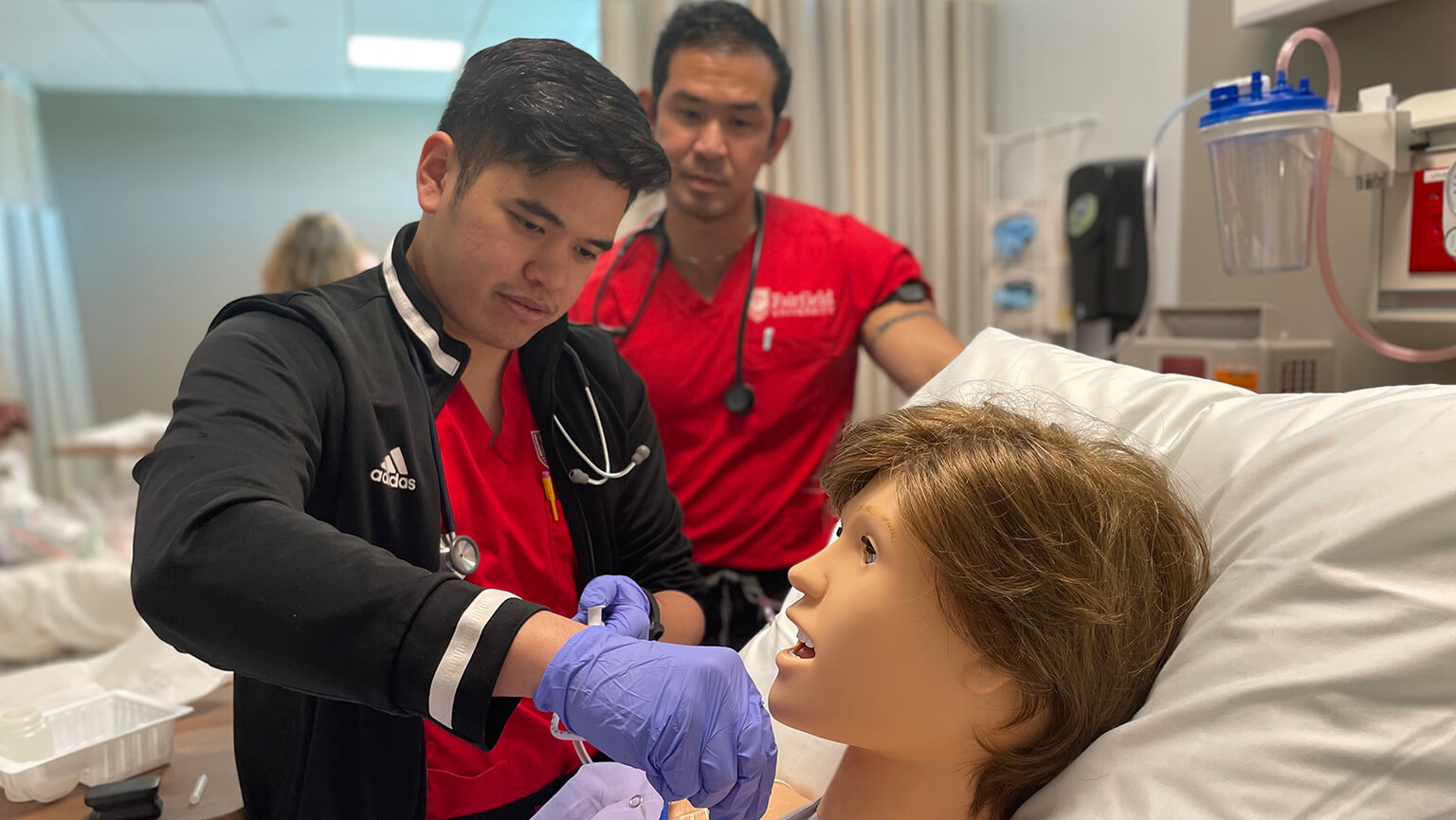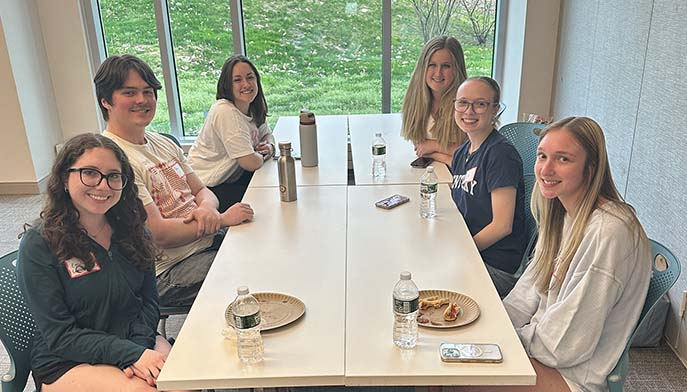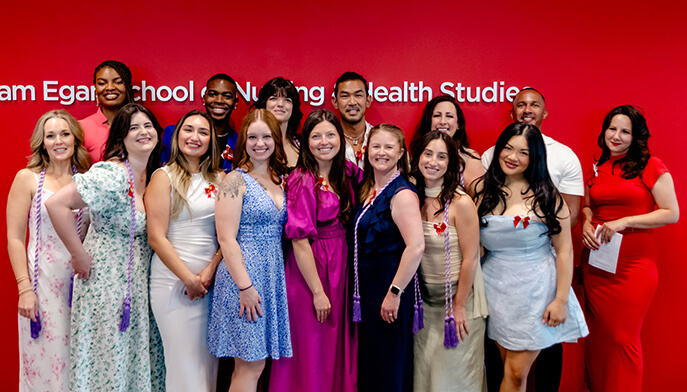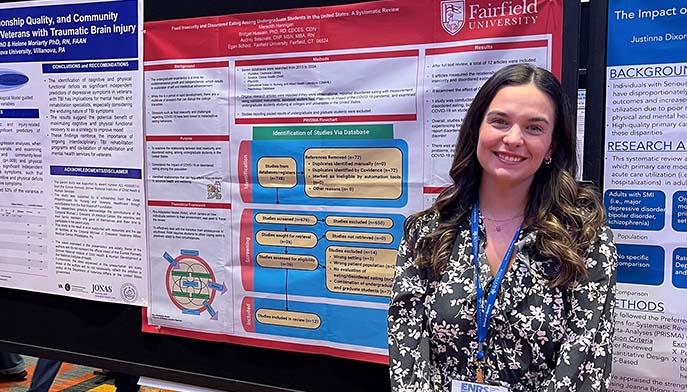The popular accelerated BSN program designed for non-nursing degree holders enrolled male undergraduate students across two campus locations at one-and-a-half times the national rate in 2024.
When Navy corpsman Christopher Mangram ‘25 deployed to Southeast Asia to provide humanitarian assistance, he was prepared to conduct endless health screenings. But during his mission on the tiny and newly independent island country of Timor-Leste, Mangram delivered a baby. “At that moment,” he said, “I found my calling.”
Now, nearly five years after his honorable discharge from the military, Mangram is enrolled in the Accelerated Second Degree Nursing (ASNDU) program at Fairfield University’s Marion Peckham Egan School of Nursing and Health Studies. He is one of seven men in the program at the Austin, Texas location.
Michael Willis ’07, ‘25 discovered his calling in circumstances less exhilarating but equally profound. After nearly a decade in the culinary industry, where he struggled to manage the realities of restaurant work, Willis was hospitalized with alcohol-induced pancreatitis. In the hospital and then recovery center, the Fairfield psychology major turned sous chef who holds a master’s degree from Boston College experienced the life-changing impact of care providers.
“The nurses who cared for me were amazing,” Willis recalled. “I wanted to be one of them, to give back and to help other people.”
Today, Willis is five years sober and in his second semester of the ASDNU program at the Egan School. He is one of 18 men in the program on the Fairfield, Connecticut campus.
Mangram, Willis, and their fellow male classmates represent 20 percent of current ASDNU enrollment across both locations. That figure well exceeds the 12.8 percent national average for men in undergraduate nursing programs.
Christopher Lacerenza, DNP, FNP-BC, director of the ASDNU program at the Fairfield, Conn. location and faculty sponsor of the Egan School Chapter of the American Association of Men in Nursing (AAMN), is not surprised by the relatively high number of men in the program.
“People who seek out second-degree programs are typically older and have more life experience than traditional undergraduates,” he said. “Those experiences often include greater exposure to medical situations and increased awareness of the value of care providers.”
Such was certainly the case for Willis. It was also the case for Marco Acevedo ’25. After graduating with double majors in biology and psychology, he began working as a medical assistant at an orthopedic group. During the pandemic, he took greater notice of the invaluable role that nurses serve in society and wondered if he should be doing more. As he watched his parents’ health decline in more recent years, he continued to wonder.
Eventually, his experiences and observations compelled him to enroll in Fairfield's ASDNU program to become a nurse. "Since I started this program, I have never felt more in the right place," Acevedo said.




